MercoPress. South Atlantic News Agency
Tag: Brazilian Social Democracy Party, PSDB
-
Thursday, October 16th 2014 - 07:45 UTC
Brazilian presidential runoff in a neck to neck technical tie
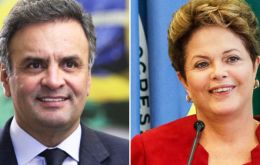
Brazilian president Dilma Rousseff and her challenger Senator Aecio Neves for the 26 October runoff, are technically tied according to the latest public opinion poll released by Datafolha, which so far has shown to be one of the most reliable pollsters.
-
Wednesday, October 15th 2014 - 23:44 UTC
Much mud-slinging but no definitive KO in Dilma/Neves first round of debates
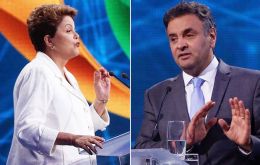
Brazilian President Dilma Rousseff and rival presidential candidate Aecio Neves have clashed over corruption and the state of the economy in the first of a series of televised debates ahead of the second round of presidential elections. 26 October.
-
Monday, October 13th 2014 - 06:38 UTC
Environmentalist Marina Silva “will vote and support” Aecio Neves
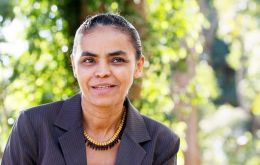
Business-friendly opposition candidate Aecio Neves received a crucial boost in Brazil's presidential election race on Sunday with the endorsement of popular environmentalist Marina Silva two weeks before his runoff against incumbent Dilma Rousseff.
-
Thursday, October 9th 2014 - 08:28 UTC
Brazil's Socialist party announces support for Neves on 26 October runoff
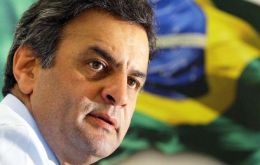
The political party that launched environmentalist Marina Silva's unsuccessful presidential bid has thrown its support behind pro-business candidate Aecio Neves for Brazil's Oct. 26 runoff vote against populist President Dilma Rousseff.
-
Monday, October 6th 2014 - 07:51 UTC
Sao Paulo state, Brazil's largest electoral district delivers solid win for Neves party

The social-democrat (PSDB) governor from the state of Sao Paulo, Brazil's largest electoral district, Geraldo Alckim was re-elected on Sunday with 57,7% of ballots, which ensures a strong spring board for the presidential runoff between president Dilma Rousseff and her PSDB challenger on 26 October, Aecio Neves.
-
Thursday, August 21st 2014 - 06:46 UTC
Environmentalist Marina presidential candidate but with a pro-agribusiness in the ticket

Environmentalist Marina Silva officially has launched a bid for president, upending Brazil's October 5 elections and threatening the ruling Workers' Party's 12-year hold on power. So far a vice-presidential candidate for the Brazilian Socialist Party, Marina accepted the nomination to top the ticket after candidate Eduardo Campos, a former governor and rising political star, was killed in a plane crash last week.
-
Thursday, July 17th 2014 - 05:24 UTC
Brazil’s main October presidential battle will take place in Sao Paulo
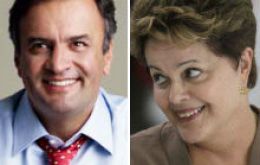
When opposition party Senator Aecio Neves officially kicked off his presidential campaign last week, he posted a video on Facebook calling for a “fairer, more efficient, and more generous Brazil”. However the word ‘efficient’ struck some as an odd rallying cry in a tropical country known for its, well, un-Swiss-like approach to time.
-
Thursday, June 5th 2014 - 07:20 UTC
High inflation and unemployment challenging Brazilian economy in election year
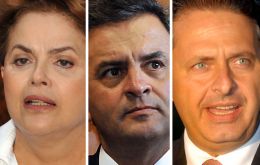
With the World Cup just eight days away, high inflation and unemployment is once again challenging Brazil’s economy, with the impact sure to influence this year’s election campaigns. Investors warned earlier this week that spending promises will undermine the fiscal discipline needed to restore confidence in the country and boost economic growth.
-
Tuesday, May 21st 2013 - 06:22 UTC
Brazil main opposition party elects a new leader and 2014 presidential hopeful
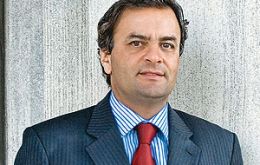
Brazilian opposition unified over the weekend behind Aecio Neves who was elected by a landslide president of the Brazilian Social Democracy Party, PSDB. His naming opens the way for his candidacy to the 2014 presidential election, when President Dilma Rousseff will be bidding for another four years.
